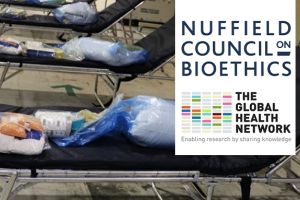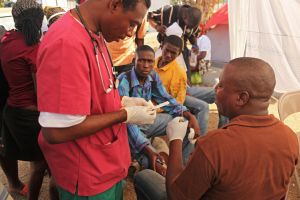News
Call for evidence on conducting ethical research in global health emergencies
The Nuffield Council on Bioethics has launched a call for evidence to inform its inquiry on the ethical issues raised when conducting research in global health emergencies.
This includes, for example, research in outbreaks of infectious disease where no effective treatment or vaccine currently exists; or research to improve the response to the health impacts of humanitarian crises, such as those caused by natural or human-made disasters, conflict, or major population displacement.
Recent, widely-publicised emergencies such as the 2014-16 Ebola epidemic in West Africa and the current outbreak in the Democratic Republic of the Congo, have highlighted the central role of such health-related research, for example to help establish what treatments are effective, or how to optimise the humanitarian response. However, the current lack of consensus on what is and isn’t ethically acceptable during emergencies is hampering research efforts, and also adding to the risk that research might be carried out in unethical ways.
The aim of our project is to help to develop a common understanding of what constitutes ethical research in such circumstances, and to use this as a basis for making practical recommendations for change. We established a multidisciplinary, international working group to carry out this project in February 2018, chaired by Professor Michael Parker, Director of the Wellcome Centre for Ethics and Humanities and of the Ethox Centre at the University of Oxford.
At this early stage of the project we would like to hear from a diverse range of organisations and people: particularly those who have direct experience in emergency response and / or academic work in this field.We have published a short paper to stimulate responses, and we are seeking evidence on issues around:
- how a ‘global health emergency’ should be defined
- who should be involved in setting research priorities in a global health emergency
- whether approaches to study design and review should be modified in any way
- whether decisions about participation in research should be approached differently
- how research, treatment, and public health activities should connect with each other
- the nature of obligations to / expectations of the front-line research staff working in these very difficult circumstances
- the challenges of effective collaboration in global health emergencies
The call for evidence is open to everyone, and the deadline for responses is 17 August 2018. Responses to the call for evidence will be influential in shaping the development of the working group’s report, due to be published at the end of 2019. Any enquiries can be directed to ghe@nuffieldbioethics.org.


Share